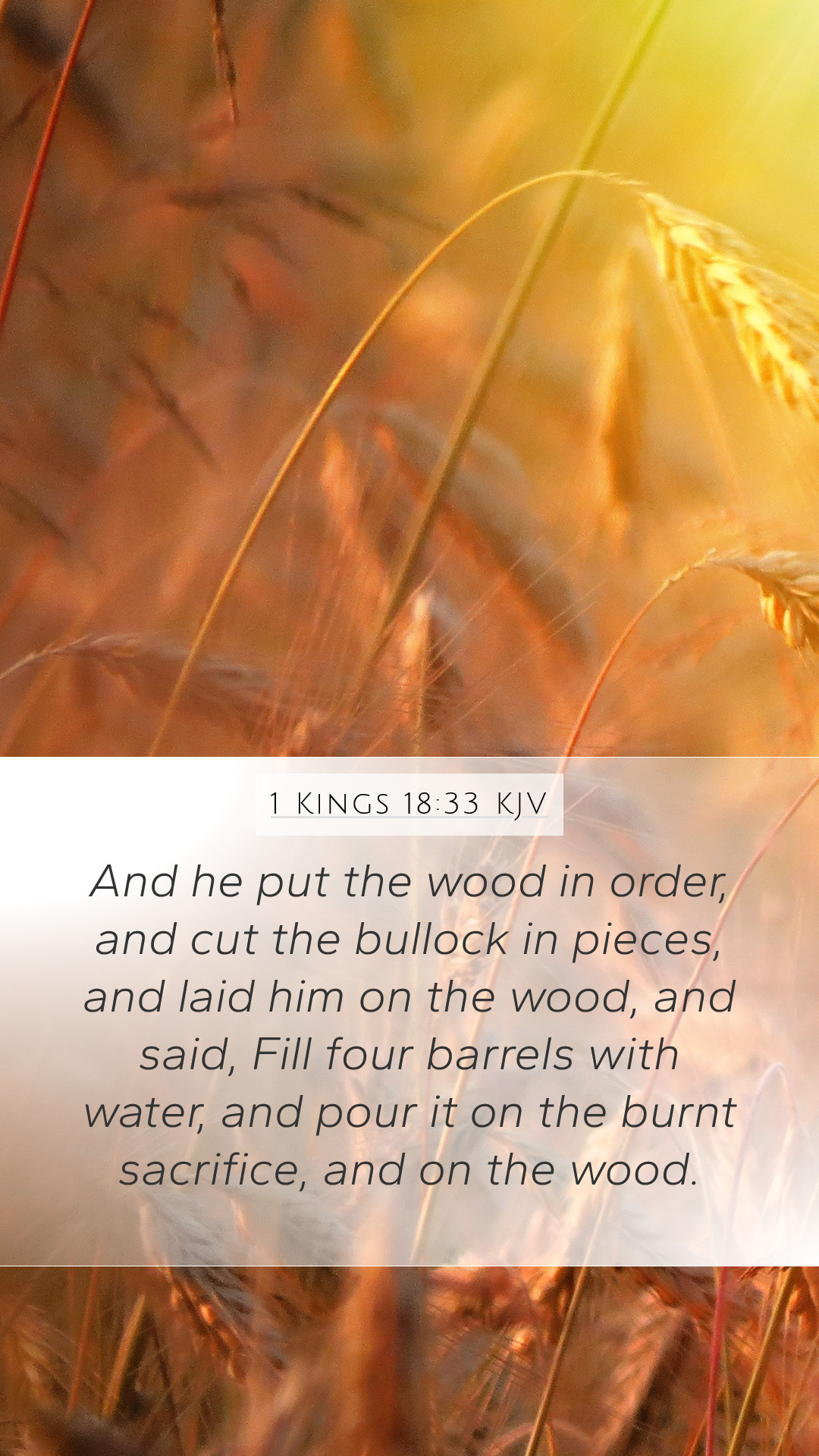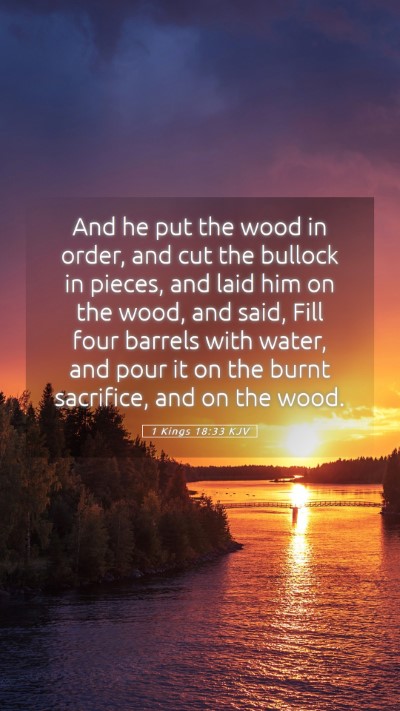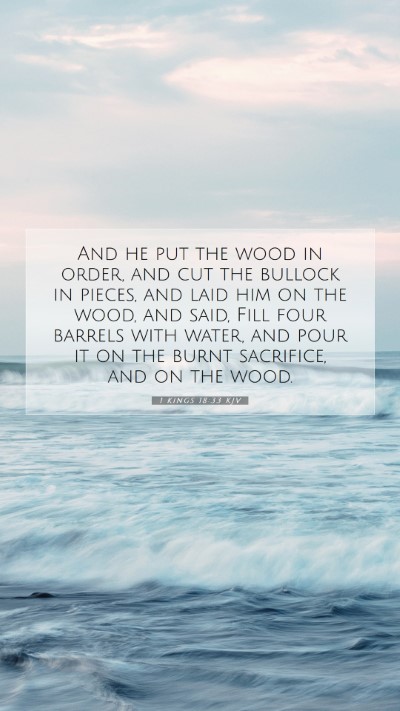Understanding 1 Kings 18:33
In this passage, Elijah the prophet stands before the Israelites in a time of spiritual conflict, contrasting the worship of false gods with the worship of the true God. The verse itself captures a moment of significant tension as Elijah prepares to demonstrate God’s power against the prophets of Baal on Mount Carmel.
Verse Content: "And he put the wood in order, and cut the bullock in pieces, and laid him on the wood, and said, Fill four barrels with water, and pour it on the burnt sacrifice, and on the wood."
Verse Exegesis and Commentary Insights
The actions described in this verse illustrate Elijah's deliberate preparation for a showdown designed to highlight God’s sovereignty and power. Here, we analyze the verse through the insights from various public domain commentaries.
Matthew Henry's Commentary
Matthew Henry emphasizes the meticulous approach taken by Elijah. By arranging the wood and cutting the bullock in pieces, Elijah illustrates not only the gravity of the worship process but also his faith that God would respond dramatically. Henry notes that the pouring of water over the sacrifice symbolizes a crucial act of faith, proving God's power even over seemingly impossible odds. This also serves as a contrast to the frenzied actions of the prophets of Baal, who at this point have already failed to elicit a response from their deity.
Albert Barnes’ Notes
Albert Barnes points out the symbolic significance of the water. In a drought-stricken land like Israel at that time, the use of water in such abundance raises the stakes significantly. Barnes interprets this act as a declaration of dependence on the LORD, showing how Elijah was prepared to present a God who acts powerfully and effectively, irrespective of the natural circumstances that seem to hinder His actions.
Adam Clarke's Commentary
Clarke remarks on the orderliness of Elijah’s actions, suggesting that this was to bring glory to God through the highest possible drama. He notes the historical context of the drought in Israel, suggesting that every drop of water represents something precious in that context, heightening the miracle's importance. Clarke also connects this act to the Israelites' need for divine intervention and reaffirmation of God's covenant with them.
Significance of Water in the Verse
The water in 1 Kings 18:33 has rich implications. It not only represents physical needs but also spiritual vitality—the necessity for God’s presence in the lives of His people. The act of soaking the altar emphasizes that God's action is not merely a response to human efforts but a sovereign act of grace.
Applications for Today
Understanding this verse has profound implications for believers today. Elijah's actions can encourage faith in the face of seemingly insurmountable challenges. Believers are reminded that when we present our needs to God, we should do so with the confidence that he can and will act in ways that may defy human expectations.
Related Bible Cross References
- 1 Kings 18:24 - The challenge set before the prophets of Baal.
- James 5:17-18 - Elijah's prophetic authority and prayer life.
- 2 Chronicles 20:9 - Acknowledgment of God's sovereignty in times of trouble.
- Matthew 21:22 - The power of prayer and faith.
- Romans 10:13 - The promise that whosoever calls upon the name of the Lord shall be saved.
Conclusion
In conclusion, 1 Kings 18:33 serves as an extraordinary example of how faith interacts with the divine. The act of pouring water over the sacrifice should inspire believers throughout generations to trust in God's capacity to respond to our needs, even when circumstances appear daunting. Through understanding this verse, individuals can deepen their engagement with Scripture and its interpretations, fostering a robust foundation for their faith journeys.


